Saint Maud Review: Never Waste Your Pain
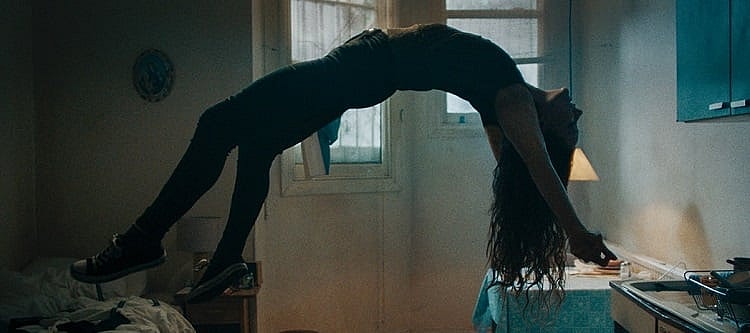
Written and directed by Rose Glass, Saint Maud is a British psychological horror film that follows nurse Katie (Morfydd Clark), who finds herself unemployed after she loses one of her patients. Now, going by the name Maud, she serves as the live-in nurse to a woman named Amanda (Jennifer Ehle) and has completely devoted herself to the Catholic religion.
Though the film premiered at TIFF in September of 2019 and in the UK in October of 2020, the film was not released in US theaters at the end of January 2021 (with an upcoming Epix and video on demand release set for February 12th) due to the ongoing COVID-19 pandemic.
Related: Earwig and the Witch Review: An Uneven But Enjoyable CGI Effort from Studio Ghibli
Previously, Amanda was a dancer, but now finds herself confined to a wheelchair thanks her stage four lymphoma. In addition to tending to Amanda’s everyday needs like food preparation, bathing, and medication, Maud takes it upon herself to attempt to save Amanda’s soul before she dies. Since Maud speaks with God regularly and hears and feels him all around her, she believes the task of saving someone to be easier than it actually turns out to be.
The film presents a jarring contrast between two individuals; one who is entirely loyal to God and religion and another who has lost all hope and meaning in existence.

Maud tries to make Amanda’s inevitable passing and living hell as a cancer patient sound like it’s all a part of God’s plan. However, Amanda believes that nothing awaits her after death, nobody ‘on high’ has been watching over her, nothing has kept her safe while she’s suffered, and that the afterlife, if there is anything that lies beyond that closing door, likely won’t be any different than her currently living hell.
There’s an off quality to Maud as soon as the film begins, as she isolates herself from society and tends to thrive on solitude while living in what is nothing more than a single room that feels barely larger than a shoe box. Though she already comes off as meek and lonely, Maud is clearly more uncomfortable when someone unexpected comes along, as she seems to retreat even further into herself whenever someone new enters the picture or her willful seclusion is broken by an unwanted individual she seems to retreat even further into herself.
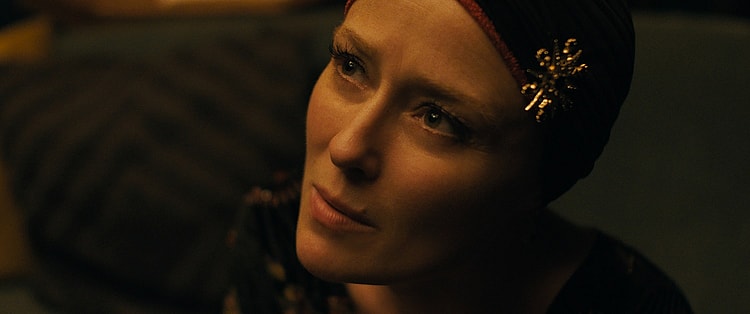
Related: Psycho Goreman Review: Hunky Boys and Severed Heads
Maud seems to get off on the word of God. Maud’s prayers and preaching of The Lord result in body tremors, barely being able to walk, her being left in a near severe orgasmic state. The stairway sequence in particular, where Maud collapses at the top of the stairs and rubs her face and head sensually, illustrates that her relationship with religion isn’t entirely normal.
Maud’s intentions behind her desire to save Amanda seem purposefully muddled. It could be that she’s just worried about Amanda’s well-being, but it seems that she’s also jealous of Carol (Lily Frazer), a promiscuous young woman who only visits Amanda at night and is paid luxuriously for whatever services she provides.
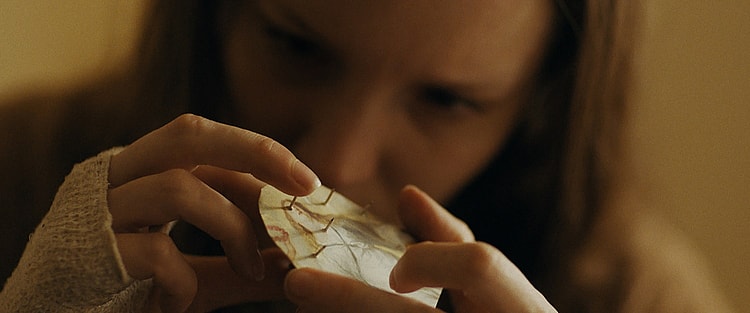
Morfydd Clark’s performance as Maud/Katie has multiple layers and is intriguing to witness, as she portrays a strangely withdrawn woman who doesn’t seem to fit in with anyone, even after she begins to lose her faith. Her facial expressions alone leave the impression that Maud is totally satisfied in the whispers she hears or the tingling she experiences all over her body when God caresses her very soul, as to her, God, his plan, and his embrace are the only things that matter.
Questioning whether Maud actually has a relationship with God or if it’s all in her head is part of what makes Saint Maud worth watching. You can probably predict which way it’s going to go, but even though you know the destination, as is often the case, the journey is what makes it worthwhile.
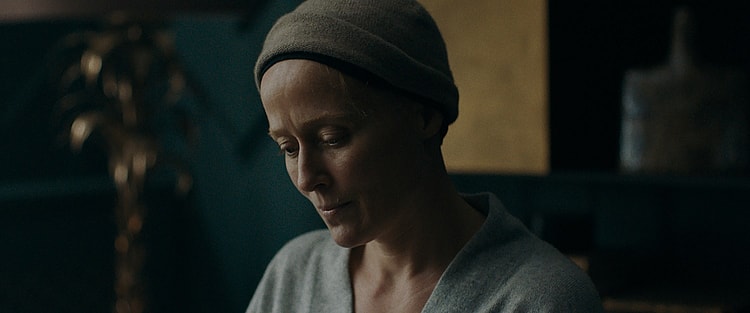
Related: Soul Review: The Art of Jazzing Through Life
Jennifer Ehle also delivers a memorable performance. As Amanda, she is obviously just trying to enjoy herself before she passes and wants nothing more than to feel something good to distract her from her terminal illness. A specifically interesting element of her performance is how Amanda’s behavior towards Maud is almost inhuman.
Ehle barely smiles or shows emotion as Amanda, portraying a woman who is completely numb to the world and what passes as human decency. She humiliates Maud constantly and often mocks her in front of other people. It seems like Amanda just wants somebody to feel as awful as she does, to know what she has to suffer through on an everyday basis.
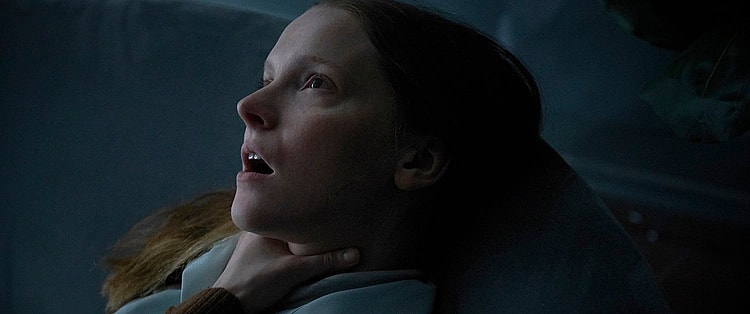
Saint Maud is a bit of a slow burn for its brief 83-minute duration, but the last ten minutes are filled with bloody revelations. Saint Maud is a film in the same vein as Bill Paxton’s Frailty, in the sense that you’re constantly questioning Maud’s sanity and religious beliefs.
Morfydd Clark and Jennifer Ehle deliver complex and memorable performances, and the horror aspects of the film are teased in just the right way. Saint Maud isn’t exactly scary, but it is psychologically satisfying and creepy enough to make the hair on your arms stand up from time to time.
